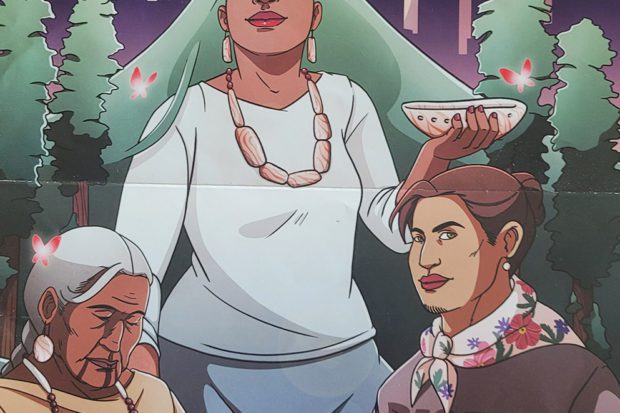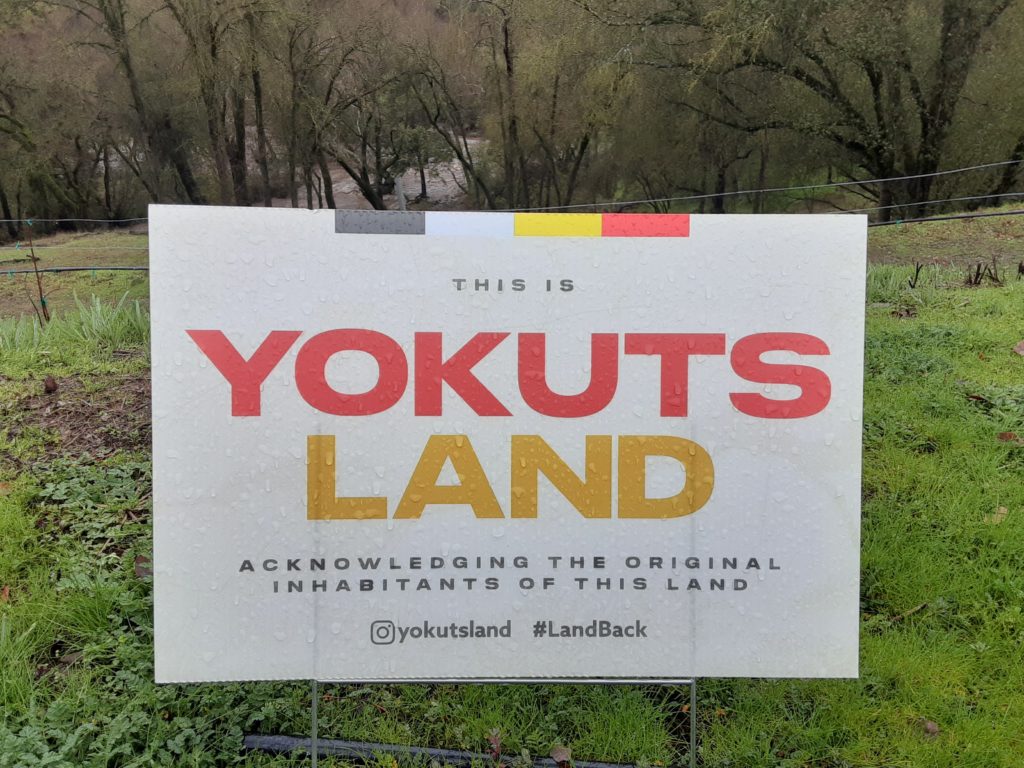


On Jan. 12, the U.S. Board of Geographical Names (USBGN) gave the 93675 zip code a new name: Yokuts Valley. This marks the culmination of a two-year process that began with local Indigenous activists. It has been supported by local residents, accelerated by the first Indigenous secretary of the Interior, Deb Haaland, bolstered by the unanimous and bipartisan decision of the California Assembly and Senate, and followed the unanimous recommendation of the California Advisory Council on Geographical Names (CACGN).
The name change came because the term squaw is widely recognized by Indigenous (and non-Indigenous!) people as an offensive, derogatory, misogynist slur (on par with the n-word or the j-word). It needed to be replaced.
Nathan Magsig, Fresno County Supervisor for District 5, was none too happy about the new name. By 1 p.m. on Jan. 12, he had issued a “clarification” to readers of the Facebook group “Squaw Valley: The Original 93675” that in actuality muddied the waters. After reporting the USBGN’s decision about Yokuts Valley, Magsig stoked White grievance and anger with falsehoods.
- Magsig claimed that the USBGN “decided to ignore the comments and resolutions by my office and the residents of S— Valley.” Not true! The USBGN carefully considered everything that Magsig had submitted (at the Board’s request)—and weighed them with considerations from all interested parties. Carefully considering is not “ignoring.”
- Magsig claimed the USBGN “does not have the authority to name recognized locations” that are not on federal land. Not true!
In September 2022, the USBGN renamed more than 650 places, not just federally owned lands, that previously had had “squaw” in their names.
Furthermore, the USBGN worked closely with the CACGN, which had plenty of local input, so the implication that the USBGN’s decision was arbitrary and without local input is manifestly false. - Magsig claimed that he expected the California legislature also to “ignore” his office’s comments and resolutions. Not true!
While the California legislature does have the authority to change place names, in the case of S— Valley, this is not a future decision. AB 2022 already became law (past tense) in November. And the CACGN had already selected “Yokuts Valley” as the replacement name.
It is ironic that Magsig complained about being “ignored,” while for two years he blocked requests from the local Indigenous community (and others) to get a hearing on this issue. He has dismissed the statements of Indigenous leaders that the term squaw is a derogatory and racist slur, and he has refused to acknowledge the fact that genocide cleared the way for White settlement of this region.
Magsig has not been “ignored.” His efforts to stop the name change through the channels available to him have failed.
As a professional politician, he is supposed to know how politics work. If he didn’t fill out the right forms, or didn’t pay sufficient attention to the process he is complaining about, that’s his responsibility.
To cast aspersions at the USBGN, the CACGN, the California legislature and anybody else is blame-casting, unprofessional and unproductive.
The objections to the name change to Yokuts Valley play to unacknowledged White bigotry and racism against Indigenous people. The objections are part of a “cultural war” that centers White grievance against “liberals who are taking over” America.
The objections stem from a view of government itself as “evil” (which, admittedly, sometimes it can be, but not in this case). And the objections are willful ignorance by Whites to deny the trauma their ancestors caused in the catastrophic California genocide.
The objections reveal a sentiment among Whites that Whites(!) are the victims of “White genocide,” that Whites(!) are being persecuted by our government and that Whites(!) are facing “forced assimilation.” This historical and moral blindness is awful to behold.
The Yokuts Valley decision has been made. What we as a community need to do now is quit bickering about the name change, accept that change happens and get on with the healing.
There is no better place to start the healing than with the Indigenous people who initiated the naming effort—descendants of the survivors and resisters of the White-supremacist genocide that happened here.
So the first thing that needs to happen is for us as a community, and especially White Christians (who often have been taught that the United States is “a Christian nation, founded on Christian principles”), to listen, really listen, to our Indigenous brothers and sisters.
Renaming S— Valley to Yokuts Valley was a step in the right direction, but it is only part of a needed change of perspective.
An example: As Roman Rain Tree and other Indigenous people keep reminding us, we as American people (and as human beings) need to return to living with the Earth, not just living on it. The Earth is the only home we as a human family have. We need to respect it and cherish it, not just exploit it for profit.
Another example: We need to be as honest about our history of genocide as Germany has been about theirs. White supremacists in the United States perpetrated genocide against the Native Americans and slavery, lynchings and Jim Crow against African Americans.
Hitler and the White supremacist Nazis paid close attention to how we used both legal and extralegal tactics to accomplish those ends. After World War II, Germany acknowledged the Holocaust and did not evade the truth. To this day, Germany does not sugarcoat its history and makes sure its children are aware that White supremacy and fascism lead to horrible results.
But here in the United States, White supremacism is not dead, denial that White supremacy exists is widespread and fascism is on the rise. Many Whites in our country prefer our myths of “American [moral] exceptionalism.” We need to open our eyes to what is happening. And that means teaching our children the truth about our history.
A third example: The name change points toward righting deep historical wrongs. Back in the 1850s, federal treaty commissioners came to California and made 18 treaties with 119 local indigenous communities—but then the federal government reneged on those promises in secret and then hid the record of that treachery for 50 years.
Indigenous people thought that in exchange for moving from their ancestral homes to reservations, the government would protect them from killers and provide enough food so they wouldn’t starve. The government lied on both counts.
Native Americans were hunted down like animals for their “pelts” (scalps and other body parts) for which vigilantes and militiamen were paid handsome bounties. Yes, there was money to be made in the genocide.
As a result, Rain Tree and other members of his local Indigenous community are still not lawfully considered American Indians by the federal government.
Ideally, the name change to Yokuts Valley will help move forward the federal recognition of those 119 tribes. As Rain Tree says, “Seeing your tribal language on public municipal property fosters convictions [that] positive changes are possible for Non-Acknowledged tribal people in America; a sentiment of being acknowledged and remembered, no longer displaced and forgotten.”
There is much more to be learned. There is much more to be said. There is much work to be done. Let the healing begin!

This is an excellent essay. I really enjoyed reading about the dialectic inherent in correcting this racist wrong against Native people in this area of California.